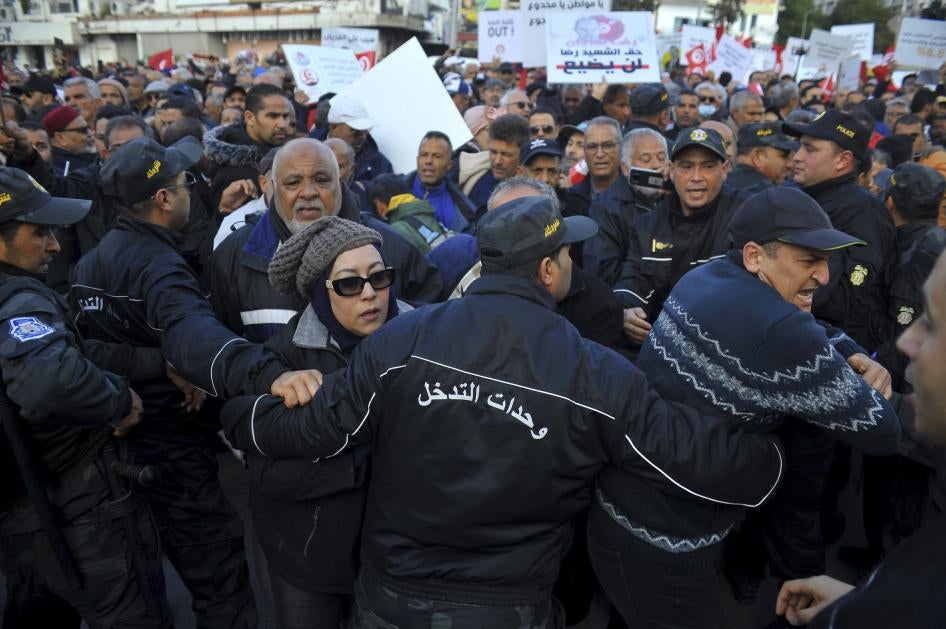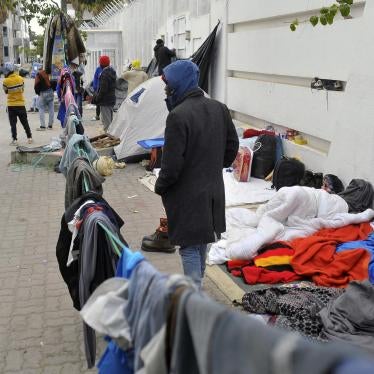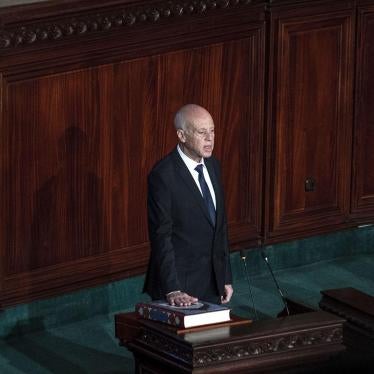What remains of the human rights gains from Tunisia’s 2011 revolution? Since President Kais Saied’s July 2021 power grab, it’s an open question.
Watching anti-Saied demonstrations in Tunis on January 14, 2023, the 12th anniversary of former President Zine el-Abidine Ben Ali’s ouster, I thought about how at least two of those gains have survived: freedom of assembly and an openness to international civil society organizations.
There were no more than a couple of thousand protesters, but their slogans and banners were bold: “No to the coup!” and “Scram, Loser!” Police did not intervene.
Saied has tolerated critical rallies, unlike Ben Ali, whose security forces prevented or broke up just about any political gathering of even a handful of people during his two-decade rule. Saied has also allowed foreign civil society activists to enter and move around the country without obstacles, including those who have denounced his authoritarian drift. Under Ben Ali, several foreign human rights critics were refused entry to Tunisia or expelled while there.
In the last two months, however, Saied has deployed some of the same hammers from Ben Ali’s toolbox. Little noticed amid the round-up of opponents and incitement against Black African migrants, Saied’s administration has begun denying permits for demonstrations and expelling or denying entry to foreign critics.
The governor of Tunis prohibited a march planned for March 5 by the National Salvation Front, a political coalition opposing Saied’s power grab, on the grounds that “some of the Front’s leaders are suspected of the crime of plotting against state security.” The Front managed to march that day, in reduced numbers due to police controls. Nevertheless, the governor’s written prohibition bodes ill.
On February 18, Saied ordered the expulsion of Esther Lynch of the European Confederation of Unions, for “interfering” in Tunisia’s “domestic affairs.” Lynch had come to support demands by the General Union of Tunisian Workers that the presidency negotiate with it and free its imprisoned members. Two weeks later, authorities refused entry to a Spanish syndicalist who had come on a solidarity visit.
Within a few years after Ben Ali seized power in 1987, his government’s prisons held thousands of suspected opponents, many tortured and their families facing unrelenting harassment. The scale of repression then and now is not comparable, yet. But by banning a public rally and visits by outspoken foreigners, Saied has come two steps closer to embracing the Ben Ali playbook.










